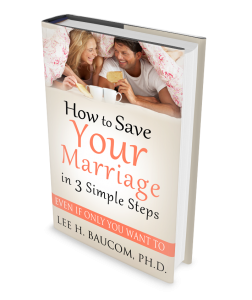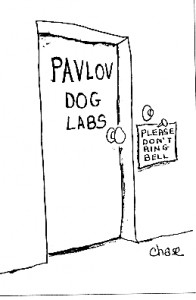SPECIAL ANNOUNCEMENT: New Ebook, How To Save Your Marriage In 3 Simple Steps, Available
https://savethemarriage.com/stmblog/wp-content/themes/corpus/images/empty/thumbnail.jpg 150 150 Lee H. Baucom, Ph.D. Lee H. Baucom, Ph.D. https://secure.gravatar.com/avatar/669b7e375d93f77521ddaba08adb8063?s=96&d=blank&r=pg A new book is a long process. Thank goodness, my new book is now launched! You can find the ebook, How To Save Your Marriage In 3 Simple Steps, in the Amazon Kindle Store, available for download.
A new book is a long process. Thank goodness, my new book is now launched! You can find the ebook, How To Save Your Marriage In 3 Simple Steps, in the Amazon Kindle Store, available for download.
The new book tackles how to save your marriage in just 3 simple steps. I do need to remind you: simple is not the same as easy. But the 3 steps are do-able. And you can work on all three steps, even if your spouse is not interested.
Better yet, the information in the book applies to all areas of your life. Do you find yourself, not just stuck in your marriage, but in your life? The book tells you how to escape the self-defeating thoughts and behavior. It teaches you how to change not just your relationship, but yourself.
Are you ready to transform your life and your marriage? Grab my new book!




